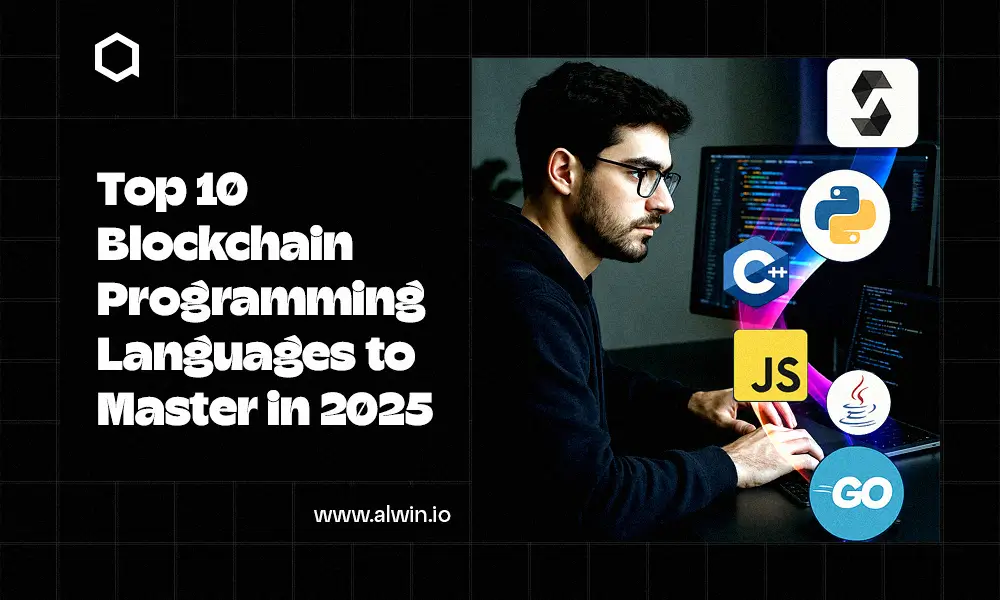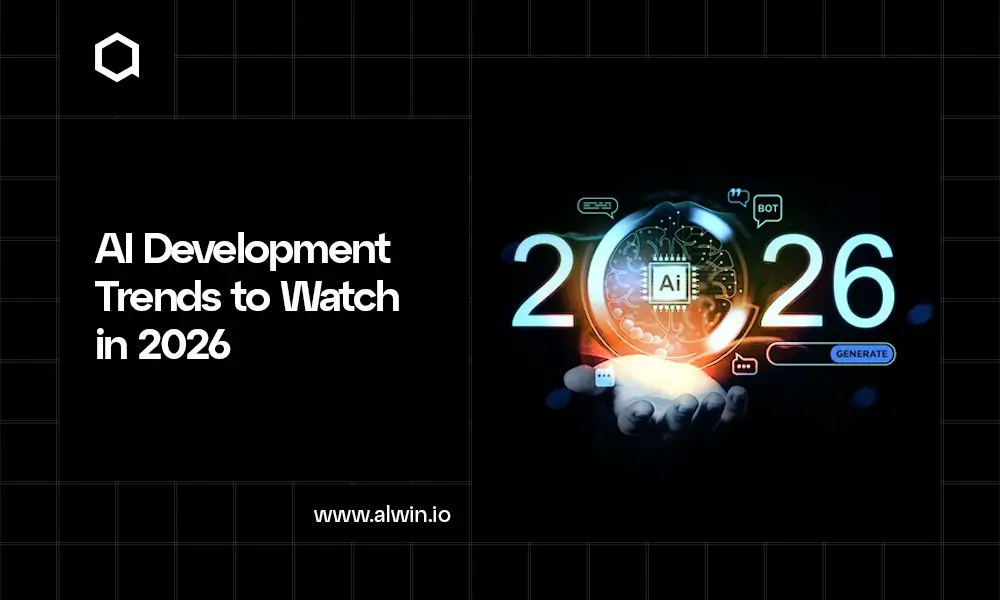In 2025, blockchain stands as the foundation of a new digital economy. From decentralized finance (DeFi) platforms to enabling secure digital identities and transparent supply chains, blockchain technology is transforming industries at a rapid pace. As adoption accelerates, the demand for skilled developers who can bring blockchain ideas to life has never been higher.
At the heart of every blockchain project lies its programming language. These languages are the tools that developers use to design smart contracts, build decentralized applications (dApps), and create secure, scalable blockchain ecosystems. Choosing the right one can make the difference between a project that succeeds and one that struggles to keep up with modern demands.
For developers, staying updated with the latest blockchain programming languages in 2025 isn’t just an option; it’s a career advantage. For businesses, understanding these languages means hiring the right talent and using the right technology stack. And for tech enthusiasts, it’s the key to truly grasping how blockchain progress is shaping the future.
Why Choosing the Right Programming Language Matters in Blockchain Development?
In the blockchain world, the programming language you choose can define the success and sustainability of your project. Every blockchain platform, whether it’s Ethereum, Solana, Hyperledger, or Cardano, has its technical requirements, preferred languages, and unique development environments. Selecting a language that aligns with your chosen platform allows for better integration, faster deployment, and fewer compatibility issues in the future.
Scalability, security, and transaction speed are the lifelines of any blockchain application. A language optimized for high-performance computing, like Rust or Go, can handle thousands of transactions per second, while a language with robust security features, such as Vyper or Haskell, can reduce vulnerabilities in smart contracts. The right choice doesn’t just make development easier; it directly impacts how efficiently and securely your blockchain solution operates.
From a career perspective, learning in-demand blockchain programming languages in 2025 opens up numerous opportunities. Startups, tech giants, and global enterprises are constantly seeking developers fluent in the languages that power next-generation blockchain networks. Whether you aim to work in DeFi, NFTs, gaming, or enterprise solutions, your language expertise will be a critical asset that sets you apart in a highly competitive job market.
Top Blockchain Programming Languages in 2025
Solidity
Solidity is the undisputed leader among blockchain programming languages, especially for developing Ethereum-based smart contracts. Its syntax is inspired by JavaScript, making it approachable for web developers transitioning to blockchain. Backed by a strong global community, extensive documentation, and a wealth of security tools, Solidity empowers developers to create robust decentralized applications. Whether you’re building DeFi protocols, NFT marketplaces, or DAOs, Solidity remains the go-to choice for Ethereum-compatible blockchains.
Rust
Rust has emerged as a favorite for blockchain developers seeking both performance and safety. Known for its memory safety and zero-cost abstractions, Rust helps eliminate common programming errors while delivering lightning-fast execution. It’s the backbone of high-speed blockchains like Solana and Polkadot, where scalability and security are mission-critical. Developers love Rust for its ability to handle large-scale, high-performance decentralized networks without compromising stability.
Go (Golang)
Golang, developed by Google, is renowned for its simplicity, concurrency support, and efficient performance qualities that make it ideal for blockchain node creation. It powers projects like Hyperledger Fabric and Ethereum’s Geth client, ensuring scalable and reliable blockchain infrastructures. With its easy-to-read syntax and built-in concurrency model, Go enables developers to build systems that handle massive transaction volumes with minimal latency.
JavaScript
As one of the most widely used programming languages in the world, JavaScript plays a crucial role in the blockchain’s front-end ecosystem. Paired with libraries such as Web3.js and Ethers.js, it connects decentralized applications to blockchain networks. For full-stack blockchain developers, JavaScript is essential it bridges the gap between user interfaces and smart contract functionality, ensuring seamless user experiences in dApps.
Haskell
Haskell is a functional programming language known for its precision and mathematical rigor, qualities that make it ideal for high-assurance blockchain projects. It’s the language of choice for the Cardano blockchain, where security and correctness are paramount. Though it has a steeper learning curve, Haskell rewards developers with unmatched reliability, making it a top pick for mission-critical blockchain systems.
Future Trends in Blockchain Programming (2025 and Beyond)
The blockchain world in 2025 is moving faster than ever, and programming trends are adapting to match its pace. One of the most exciting shifts is the integration of artificial intelligence (AI) into blockchain development. AI-powered tools are now helping developers write, test, and audit smart contracts more efficiently, reducing the risk of bugs and security flaws. This fusion of AI and blockchain is opening doors to smarter, self-learning decentralized applications that can adapt in real-time to user needs and market conditions.
Another major trend is the rise of cross-chain and multi-language interoperability. The future of blockchain isn’t isolated networks; it’s a connected ecosystem where data and assets can move freely between platforms. Developers are increasingly building solutions that support multiple blockchain programming languages in 2025, enabling projects to tap into the strengths of different chains without being locked into a single technology stack.
Security remains the top priority. With blockchain handling financial transactions, sensitive data, and identity management, the demand for security-focused programming languages is growing. Languages like Rust, Vyper, and Haskell are gaining traction for their ability to prevent vulnerabilities at the code level. As cyber threats evolve, so will the push for tools and languages that make blockchain applications more resilient than ever before.
Key Takeaways
Explore the top programming languages for blockchain in 2025. Learn their use cases, benefits, and tips to choose the right language for building smart contracts, dApps, and secure blockchain solutions.
As we step deeper into the digital economy, it’s clear that mastering the right blockchain programming languages in 2025 is more than just a technical skill; it’s a gateway to shaping the future. These languages form the backbone of decentralized applications, smart contracts, and blockchain solutions that are reshaping industries worldwide.
For developers, there are abundant opportunities in fast-growing sectors like DeFi, NFTs, gaming, and enterprise blockchain systems. For businesses, understanding these languages ensures you’re equipped to adopt the right technology and attract top talent. And for tech enthusiasts, exploring them provides a deeper insight into how blockchain continues to transform the digital world.
The best time to start is today. Explore learning resources, engage in online communities, and experiment with building simple projects. Each step will strengthen your skills and prepare you for the massive opportunities ahead. Blockchain is no longer a future trend; it’s the present reality, and your ability to code within it can place you at the heart of this change.
If you’re a business looking to implement blockchain solutions, WeAlwin is a trusted blockchain development company that offers end-to-end services — from building secure smart contracts to creating scalable dApps and enterprise-grade blockchain platforms.
So, take that leap, start your journey with the languages that resonate with your goals, and be part of the next wave of blockchain growth. The future is already being built; make sure your name is written in its code.



